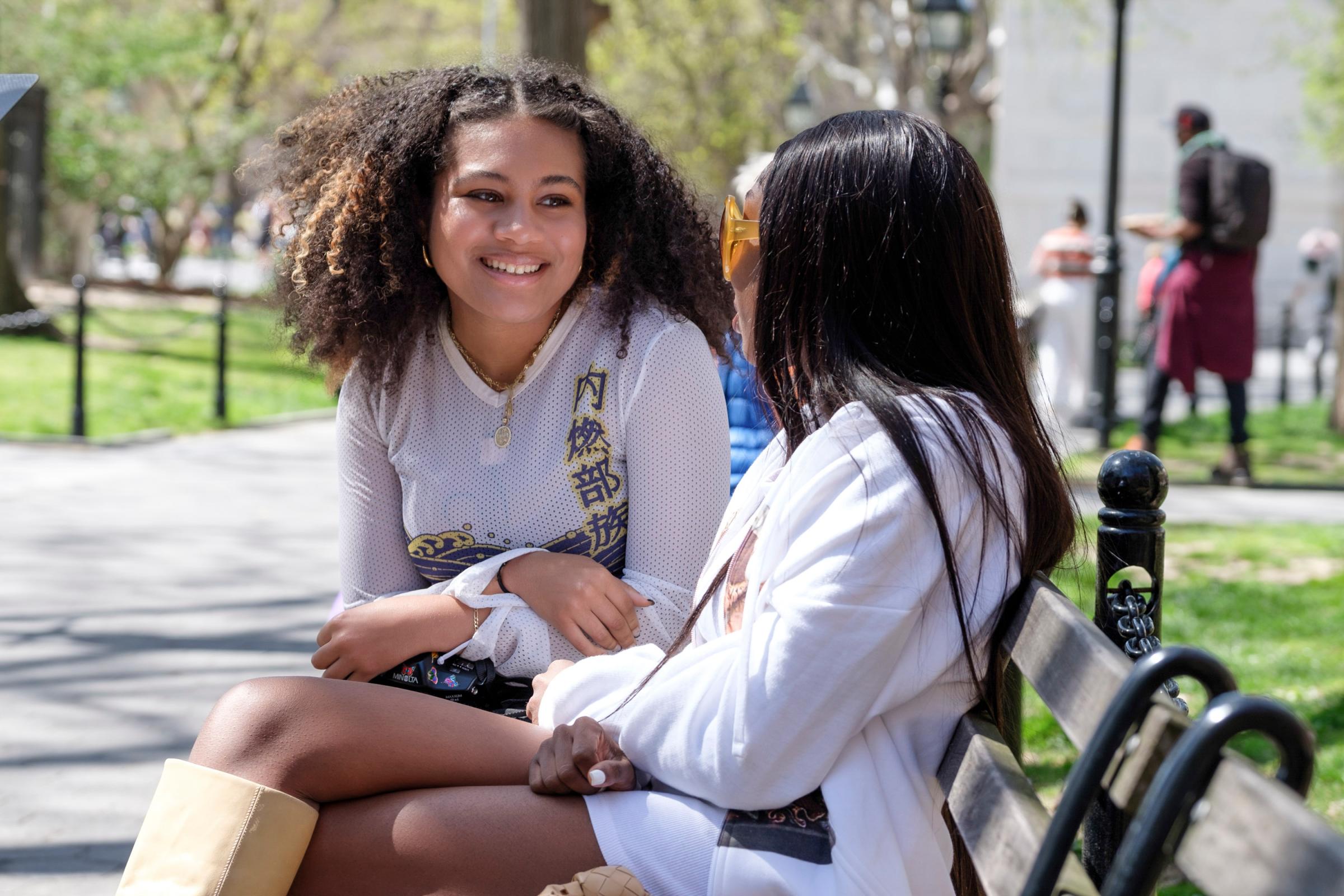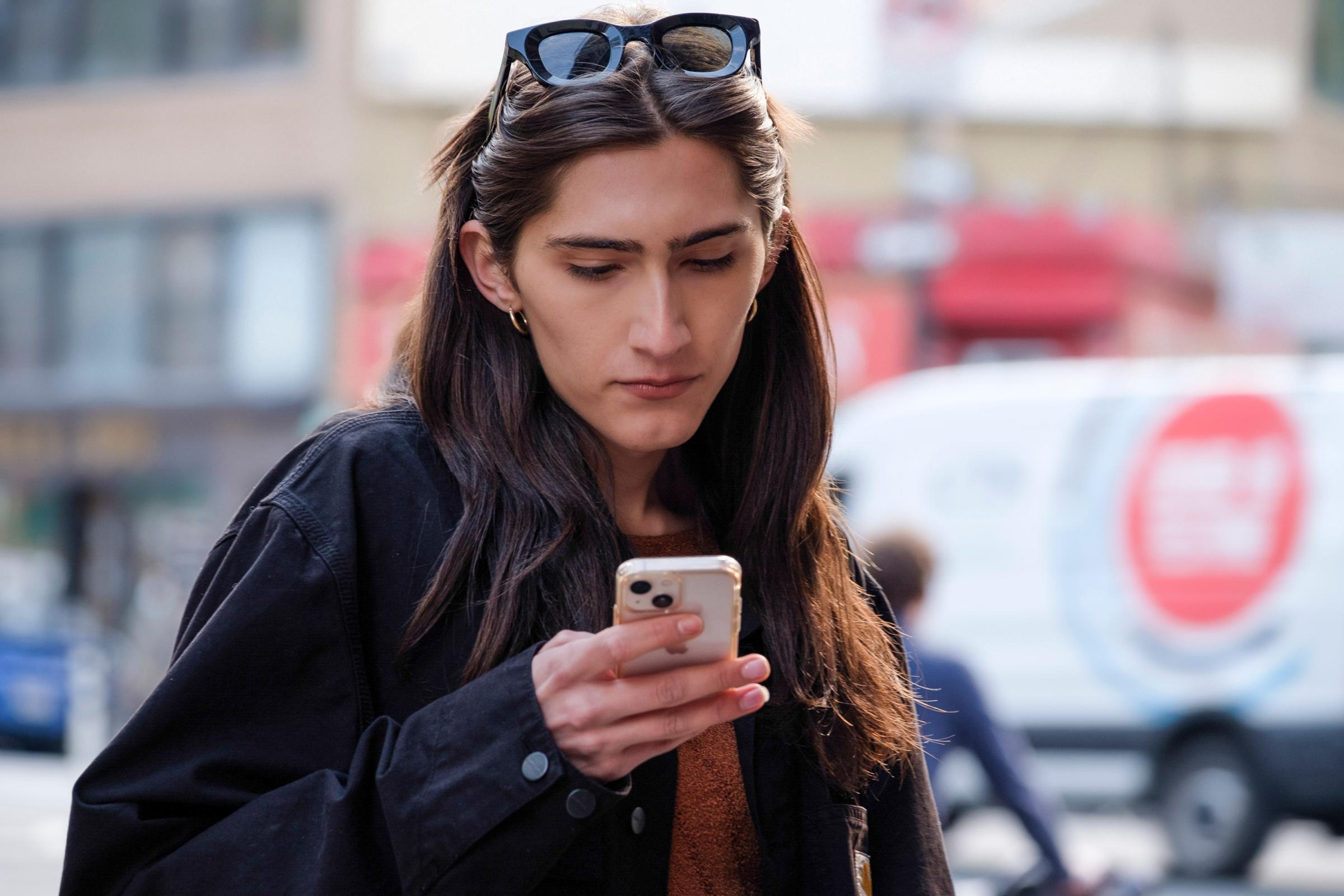In the winter of 1992, MTV moved seven young adults with creative aspirations into a Soho loft, surrounded them with camera crews, and massaged the raw footage into The Real World—a provocative unscripted drama that invented reality television as we know it. Thirty years later, Disney’s YA-oriented cable channel Freeform is essentially repeating that formula with The Come Up, named for its six stars’ self-identification as emerging icons of downtown culture. But because Gen Z is not Gen X, and reality TV is no longer the revolutionary form it once was, the experiment yields a weirdly empty, inert show with little insight to offer into youth culture today.
At first glance, the cast of The Come Up, which premiered Sept. 13 with a four-episode block that will start streaming on Hulu the next morning, embodies everything cool and subversive about a generation that is just now coming into its own. Sophia Wilson is an in-demand photographer struggling to balance high-profile assignments with NYU coursework. Taofeek Abijako launched his buzzy fashion label, Head of State, while still in high school. Ebon Gore has found her people in the queer nightlife community, where Black trans organizers like herself are ascendant. When we meet model Fernando Casablancas, who happens to be the son of Elite Model Management founder John Casablancas and half-brother of the Strokes frontman Julian Casablancas, he’s recovering from a rough breakup with an even more famous model. And Claude Shwartz, a New York native who introduces herself as “a trans woman who wants to be an actress,” is playing sherpa to Ben Hard, a wannabe comedian fresh off the plane from Texas.

In Real World: New York terms, Ben is the show’s Julie: a wide-eyed Southern ingénue who’s come to the big city to broaden his horizons and discover who he wants to be. Acting classes, open mic nights, and flirtations with guys ensue, in an environment more hospitable to his budding bisexuality than his family’s San Antonio milieu. Mundane as they are, his adventures with Claude—The Come Up’s real find, a funny and observant commentator despite limited material—and a half-heartedly rebounding Fernando take up the bulk of the four episodes sent for review. If it’s a spoiler to reveal that Ben kisses a boy and he likes it, well, it shouldn’t be.
This tale-as-old-as-time, new-kid-in-town story saps screen time from the two most evidently talented cast members: Taofeek and Sophia. He’s built an aesthetic and a brand around his childhood in Nigeria, she’s focused on reviving analogue photography in a digital era, and we see them bonding over their shared preference for Black models and subjects. Unfortunately, their story lines on the show are nowhere near as compelling as their work. (Generous footage of one Head of State fashion show is easily The Come Up’s highlight.) Almost halfway through the first season, I still have yet to get a sense of who they are as people. Even less developed is Ebon, who doesn’t get more than a few minutes of attention until episode 3.
Maybe the more accomplished cast members had less incentive to open up. Maybe it’s worth noting that Sophia, Taofeek, and Ebon are Black, while Ben, Fernando, and Claude are not. But what’s certain is that the cast doesn’t really function as a cast. They live separately, in Manhattan apartments whose rents young artists without readily apparent day jobs probably could not pay on their own, eliminating any opportunity to capture serendipitous late-night gossip sessions or confrontations. The producers don’t even manage to get the whole cast in the same room with the kind of contrived social gatherings that fuel Real Housewives plots.

Still, I have doubts that adjusting the format would fix the show. The vulnerability producers would have to elicit from their subjects in order to create an honest account of life “on the come up,” in a gentrification-ravaged downtown where rich kids cosplay Warhol superstars while the world burns, just seems impossible for a generation that grew up savvy about the tropes of reality TV. (Even The Real World, which last aired a new season in 2019, on Facebook Watch, has been a drunken, lobotomized shell of its original self for at least two-thirds of its run.) More than that, Gen Z was raised in a culture shaped by 24/7 peer surveillance, of which reality TV is only one extreme manifestation. The social-media success that’s now crucial to all kinds of public-facing creative careers demands constant workshopping of the self for maximum engagement and approval.
I’m not talking about so-called cancel culture so much as the fact that everyone in the public eye eventually becomes the subject of social media discourse, which tends to slot them into stock roles like hero and villain, try-hard and troublemaker, that can be tough to shake. That isn’t a problem for the Christine Quinns and Spencer Pratts of the world, who are happy to play the heel in return for money and attention. But for The Come Up cast members who hope to use Freeform as a springboard to anything besides more reality TV fame, it’s imperative to make viewers like, or at least not dislike, them. Because they have a product to sell: themselves.
And they seem shrewd enough to know that. Asked the open-ended question “What is downtown?,” Claude contextualizes the scene within a history of bohemian cool defined by It girls from Grace Jones to Chloë Sevigny, then backpedals a bit. “I don’t know if we can call it this bohemian paradise when creative endeavors are being funded through venture capitalism,” she points out, with a rueful smirk that suggests she understands that the same critique applies to Disney-backed reality shows. Such flashes of self-awareness don’t stop a series premised on authenticity from ending up as a glossy infomercial for the cluster of pandemic-defying, possibly-already-passé downtown scenes currently accruing buzz under the media moniker Dimes Square. They do, however, work wonders for the cast members’ personal brands.
More Must-Reads from TIME
- Donald Trump Is TIME's 2024 Person of the Year
- Why We Chose Trump as Person of the Year
- Is Intermittent Fasting Good or Bad for You?
- The 100 Must-Read Books of 2024
- The 20 Best Christmas TV Episodes
- Column: If Optimism Feels Ridiculous Now, Try Hope
- The Future of Climate Action Is Trade Policy
- Merle Bombardieri Is Helping People Make the Baby Decision
Contact us at letters@time.com